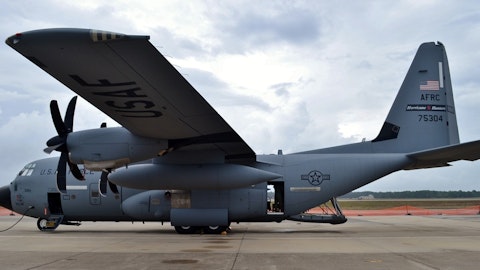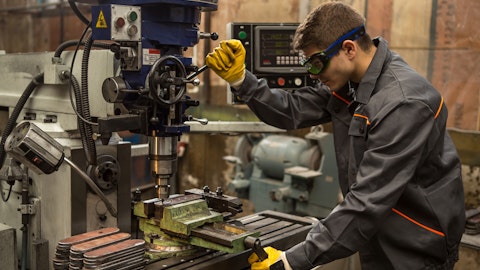Daniel Imbro: Yes. That’s perfect. And then on the service delay side, you said mentioned wanting to hire more technicians. How is that going? How is the technician availability? And are you having any trouble there that could limit your ability to catch up on this throughput?
David Meyer: Yes, there’s a real shortage out there, just technicians in general, whether you’re talking about the airline industry or trucking industry or marine power sports, wherever, automotive, and we really hit hard into this with our customer care strategy several years ago and have just a lot of actions in place that we feel really good about and have been the pilot and the cutting edge for many people in our industry that are trying to follow suit and keep up with us on a lot of the things we’re doing. We just now came out with the first accredited apprentice program for our industry. We have the first student tech scholarship sponsorship program that we started years ago that we’re really starting to see the fruits of now.
And then our internship programs as well as the recruiting efforts that we’re doing, the sponsoring that we’re doing with tech schools and relationships we have with the high schools, and again, those tech schools. And so, it all takes time and thankfully we put a lot of the actions in place that we did that we’re now able to see some of the fruits of the labor on because you got a lot of baby boomers, a lot of workers that are retiring now exiting the workforce. And so as you can imagine, it takes in order to grow the base and add the amount of technicians we need and then you to offset the retirements it takes quite a bit and we feel good about the traction momentum we’ve got in that, and that’s going to remain an absolute front and center priority for us as we go forward.
Operator: Our final question this morning comes from the line of Steve Dyer with Craig Hallum Capital Group. Please proceed with your question.
Steve Dyer: Curious on the 6 million of manufacturer incentives that you expect to achieve in Q4, I guess, is that dependent on CNH and your OEM partners meeting their delivery schedules to you? Or is that fully within your control?
David Meyer: And for competitive reasons and others, we don’t really get into a lot of the mechanics on that, but I guess what I would say right, is we have it in our guidance and that reflects our confidence in achieving the number. There are definite timing differences between this year and last year and that’s why we put a little bit more perspective on that.
Steve Dyer: Then for a second question, what percent of equipment is leased versus sold today? And I guess how has that mix trended over the past several years?
David Meyer: Right now, we’re in single digits on leasing versus sold just a tremendously low amount being leased. And that has trended way down. I think Deere mentioned also on their call, you look at that’s a big difference between 10 years ago and today is not only the level of leasing, but the quality of the leases. So one in two year leases, everybody was doing those. They were very problematic back then. And then of course, when the downturn had hit, then those lease returns were coming back in addition to a glut of supply of used from the overbilling, overselling a new, that all happened, and none of that trifecta is in place today. So, we have way less leases. We have the leases — we do have our minimum three year, mostly five year very quality leases.
And then again, as Bo mentioned with a combine example, you just got a lot lower levels of used equipment in play today. And then unfortunately, it constrained our revenue opportunity, the last year or two here. But the limited production capabilities just didn’t put out the amount of new units. So it results in an older fleet and most categories except to a degree, combines and so that helps with the dampening. And then with less new sold, you just didn’t get the amount of used. And so again, back to the shortage of used supply. So, all those components are tremendously healthy and very supportive factors as we go into next year.
Operator: Thank you. Ladies and gentlemen that concludes our time allowed for questions. I’ll turn the floor back to Mr. Meyer for final comments.
David Meyer: Okay, well thank you everybody for your time today and your interest in Titan Machinery.
Operator: Thank you. This concludes today’s conference call.
David Meyer: That concludes our call.
Operator: Thank you. This concludes our conference call. Thank you for your participation. You may now disconnect your lines.
Follow Titan Machinery Inc. (NASDAQ:TITN)
Follow Titan Machinery Inc. (NASDAQ:TITN)
Receive real-time insider trading and news alerts




